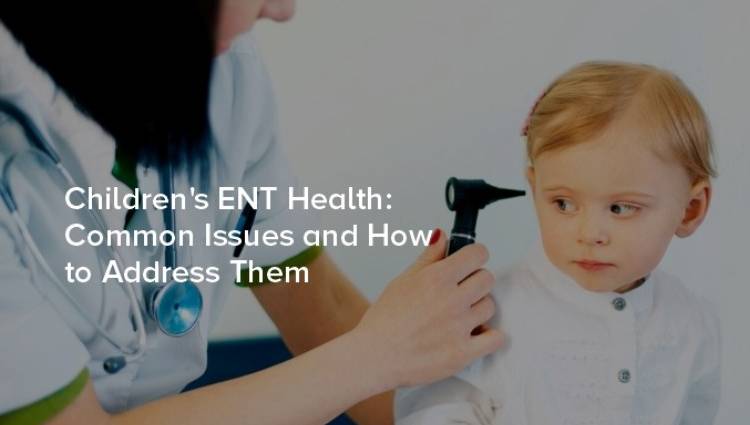
As a parent, you always want your child to be healthy and happy. Unfortunately, children are not immune to health problems, and one area that may cause you to worry is ENT or ear, nose, and throat health. ENT health is vital as it plays a significant role in your child's overall development, and these issues can affect their hearing, breathing, and communication abilities.
Ear infection
Ear infections, also known as otitis media, are one of the most common ENT issues faced by children. This condition occurs when fluid accumulates behind the eardrum and becomes infected by bacteria or viruses. Ear infections can cause severe pain, fever, and often lead to fluid buildup in the middle ear. If left untreated, these infections can even lead to hearing loss. To address ear infections in children, seek medical help immediately and follow the doctor's instructions. Most often, doctors prescribe antibiotics, ear drops, or nasal sprays to treat the ear infection. Also, encourage your child to rest and stay hydrated to help their body fight off the infection.
Tonsillitis
Tonsillitis is an infection that occurs when the tonsils, the small glands at the back of the throat, become inflamed. This condition can cause a sore throat, difficulty swallowing, and sometimes, fever. Tonsillitis is often caused by a bacterial or viral infection, and while it can affect anyone, it is most common in children. To address tonsillitis in children, you can use over-the-counter pain relief medication like paracetamol and rest. In severe cases, doctors may prescribe antibiotics to clear the infection. If your child has recurrent episodes of tonsillitis, your doctor may recommend removing their tonsils.
Nasal allergies
Nasal allergies, also known as allergic rhinitis, occur when the body's immune system overreacts to harmless substances such as pollens, dust mites, and pet dander. These allergies can cause a runny or blocked nose, sneezing, itching, and irritation in the eyes. Nasal allergies can affect children at any age, and while there is no cure for it, there are many ways to reduce allergy symptoms. These may include using antihistamines, decongestants or nasal sprays, and avoiding allergens as much as possible. If the allergy symptoms are severe, consult a doctor for further treatment.
Obstructive sleep apnea
Obstructive sleep apnea occurs when a child's upper airway becomes blocked during sleep, causing their breathing to pause or become shallow. This condition affects about 1-3% of children and can have severe consequences, including developmental delays, behavioral problems, and heart complications. To address obstructive sleep apnea in children, doctors may recommend lifestyle changes such as losing weight (if necessary), sleeping on their side, and avoiding allergens. In some cases, they may also suggest medications, nasal sprays, or continuous positive air pressure (CPAP) devices to help keep their airways open while sleeping.
Conclusion:
Children's ENT health is vital to their overall wellbeing, and as a parent, you need to be vigilant about any signs or symptoms of common issues like ear infection, tonsillitis, nasal allergies, and obstructive sleep apnea. If you notice any problems, seek medical attention immediately and follow the doctor's instructions. By taking care of your child's ENT health, you can ensure that they grow up healthy and happy.